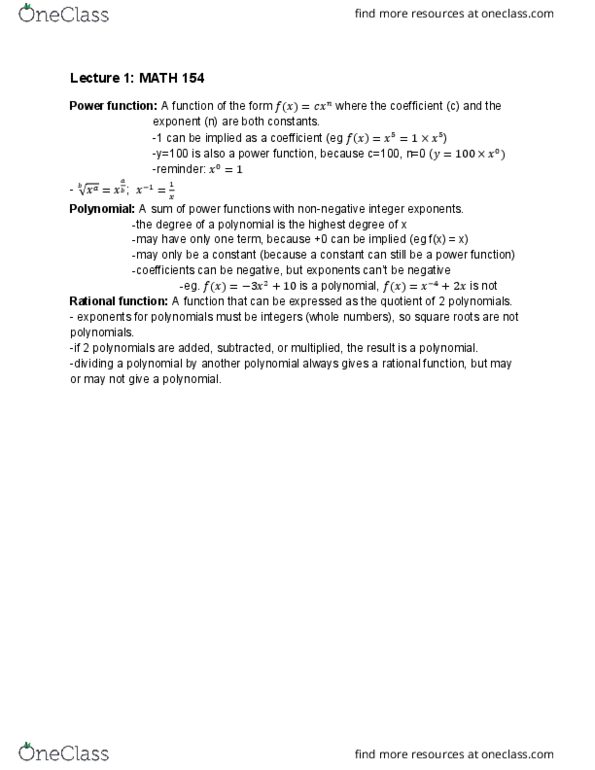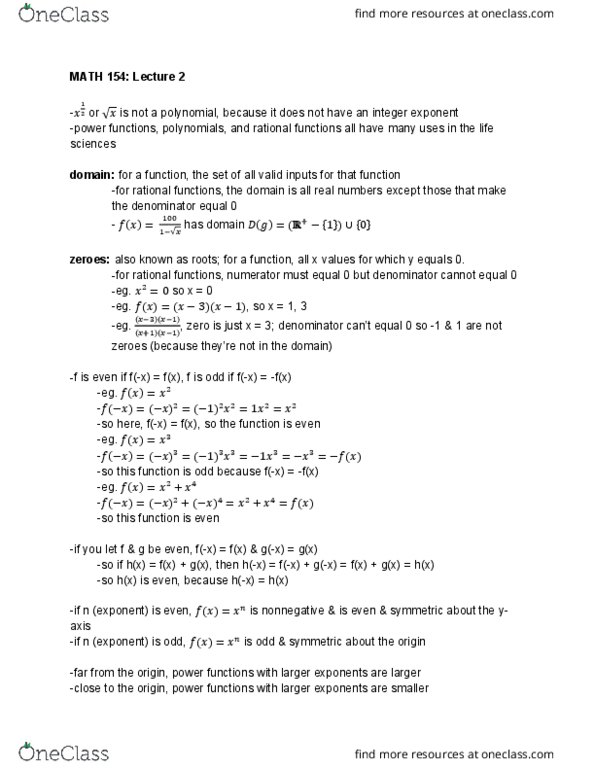MATH 154 Lecture Notes - Lecture 1: Exponentiation, Rational Function, Polynomial
126 views1 pages
Verified Note
2 Nov 2018
School
Department
Course
Professor
MATH 154 verified notes
1/38View all
Document Summary
Power function: a function of the form (cid:4666)(cid:1876)(cid:4667)=(cid:1876) where the coefficient (c) and the. 1 can be implied as a coefficient (eg (cid:4666)(cid:1876)(cid:4667)=(cid:1876)(cid:2873)=(cid:883) (cid:1876)(cid:2873)) Y=100 is also a power function, because c=100, n=0 ((cid:1877)=(cid:883)(cid:882)(cid:882) (cid:1876)(cid:2868)(cid:4667) Polynomial: a sum of power functions with non-negative integer exponents. The degree of a polynomial is the highest degree of x. May have only one term, because +0 can be implied (eg f(x) = x) May only be a constant (because a constant can still be a power function) Coefficients can be negative, but exponents can"t be negative. Eg. (cid:4666)(cid:1876)(cid:4667)= (cid:885)(cid:1876)(cid:2870)+(cid:883)(cid:882) is a polynomial, (cid:4666)(cid:1876)(cid:4667)=(cid:1876) (cid:2872)+(cid:884)(cid:1876) is not. Rational function: a function that can be expressed as the quotient of 2 polynomials. Exponents for polynomials must be integers (whole numbers), so square roots are not polynomials. If 2 polynomials are added, subtracted, or multiplied, the result is a polynomial.




















